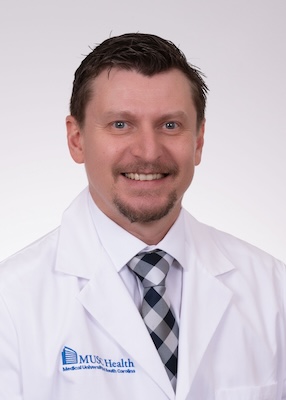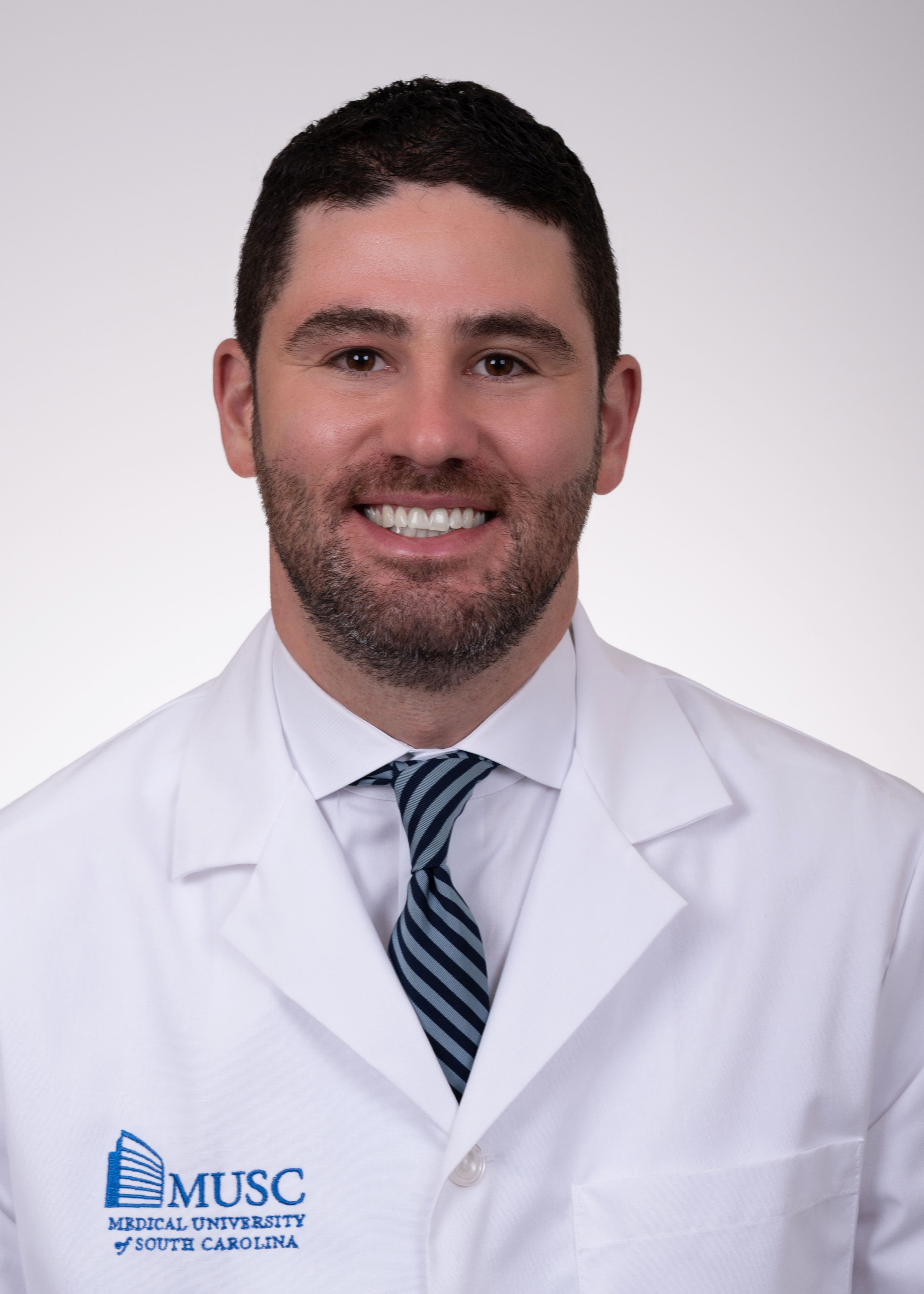
Eric Wallen, MD, FACS
- Urology
- Prostate Cancer
- Charleston, SC
- Mount Pleasant, SC
- North Charleston, SC

Genitourinary cancers can have a profound effect on your life, whether your disease is in the prostate, kidney, bladder, adrenal glands, penis or testicles. Experts at MUSC Hollings Cancer Center are pioneering treatments to fight genitourinary cancers, giving you access to the very latest techniques and therapies.

MUSC Hollings Cancer Center has been recognized as High Performing in Prostate Cancer Surgery in the 2025–2026 U.S. News & World Report rankings. This honor reflects our skilled team's use of cutting-edge treatments that deliver better outcomes.
At Hollings, our team of prostate and genitourinary cancer specialists is dedicated to giving you the most accurate and effective treatment possible. Thanks to breakthroughs in cancer medicine, we are able to offer you a variety of treatments including:
Our imaging equipment includes a 128 slice CT scanner, 3 Tesla MRI and PET Imaging.
Hollings is at the forefront of laparoscopic and endoscopic techniques for surgeries that have previously been done via a full open incision. These minimally invasive techniques mean more precise surgeries with less damage to surrounding tissues, which generally means quicker recovery time and less pain.
Many of our surgeons are trained in the use of the da Vinci Surgical System, a robot that helps to increase surgical precision.
We are also the only health care system in South Carolina to offer single-port surgery for prostate and kidney surgeries, including cancer surgeries. Surgical robots have arms, or ports, through which all the surgical instruments and camera are threaded toward the surgery site. Most robots have several arms.
In a single-port surgery, the robot has only one arm, which means the patient needs only one incision. The surgical instruments and camera are inserted through the single port. A single incision means the surgery can often be performed as an outpatient procedure when appropriate, and the patient should experience less pain, faster recovery time, and an almost invisible scar.
Depending on your individual need, our doctors are able to perform surgery on prostate tumors in three different ways: robotic, single-port robotic, and retropubic. MUSC is the only center in South Carolina that offers all of these options.
Among the latest techniques for killing tumors in their current location while preserving surrounding tissue, we use NanoKnife, HIFU, cryotherapy, and brachytherapy.
To refer a prostate and genitourinary cancer patient to Hollings, please call patient referral coordinator Heather Williams at 843-985-0582.
Our prostate and genitourinary cancer nurse navigators, Kristin Powers, BSN, RN, and Brigitte Kettering, MSN, RN, OCN, will help you understand what to expect during treatment and answer questions you may have.






According to the American Cancer Society, prostate cancer is the second leading cause of cancer death in American men. About 200,000 men in the U.S. are diagnosed with prostate cancer each year. Prostate cancer has a high cure rate when found in early stages, so detecting it before it has spread is very important.
According to guidelines from the American Urological Association, men should talk with their doctor about receiving a Prostate Specific Antigen (PSA) test at the age of 55. If you’re at a higher risk, including having family history or being African American, earlier tests may be necessary. The PSA blood test is easy for your physician to obtain, and the results come back quickly. This test looks at the PSA levels in your blood to help detect the possibility of cancer. Elevated PSA levels may be a sign of prostate cancer, but many other things can also affect your PSA level.
The digital rectal exam (DRE) is another form of screening. A DRE is a very nonspecific and nonsensitive test and is often combined with the PSA test. If your PSA is elevated for your age and/or something is abnormal with your digital rectal exam, this leads to further investigation. Often, you would receive a referral to a urologist who would discuss the pros and cons of proceeding with further workups such as an MRI or a biopsy.
Hollings’ world-renowned doctors and researchers are pushing what is possible in the treatment of prostate and genitourinary cancers. Using state-of-the-art technology and team science, Hollings is shaping the future of cancer medicine through ongoing research.
Some recent projects include:
In addition, Hollings’ dedicated Prostate Transdisciplinary Cancer Team brings together expertise from different disciplines in basic and clinical research for monthly meetings to collaborate on ongoing prostate cancer research.
As South Carolina’s only NCI-designated cancer center, Hollings offers you clinical trials and treatments that aren’t available anywhere else in the state. These opportunities provide you with access to the latest medications, therapies, and surgical techniques that can improve your outcomes. Learn more about clinical trials at Hollings and see our current genitourinary and prostate cancer clinical trials.
I hope my story can encourage other men to get prostate cancer screenings and possibly save a life. Every life is important. These men represent somebody’s father, husband, brother and an important community member.